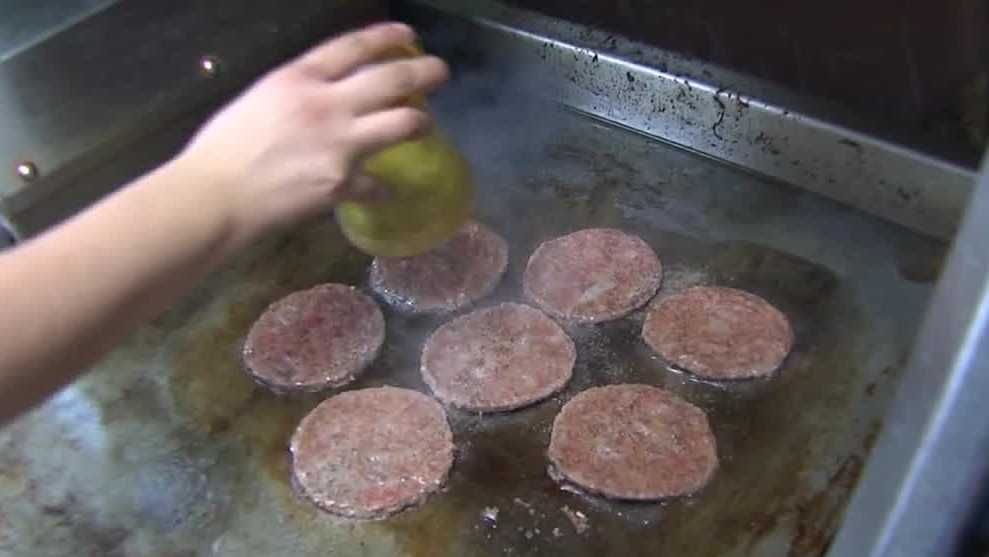A local doctor helps Omaha families understand their risk as the Centers for Disease Control and Prevention investigates an E. coli outbreak linked to McDonald’s food.On Oct. 22, the CDC announced nine people in Nebraska were among dozens who have fallen sick after eating from the fast food chain. All but one of those cases in our state are in Douglas and Sarpy counties.The CDC says all of the affected patients reported eating at McDonald’s before their illness, most eating a Quarter Pounder.McDonald’s has now recalled both the Quarter Pounders and the slivered onions used on the burgers. Local infectious disease specialist Dr. Renuga Vivekanandan, MD, says E. coli is a bacteria that can be found in many things in our environment, such as sand or grass.She says the McDonald’s food could have gotten contaminated in several different ways.”When that food gets contaminated, and we eat it, then it will get into the body, then it can multiply and cause infection,” said Dr. Vivekanandan. She says this outbreak is caused by a specific strain of E. coli, which produces a toxin called a Shiga toxin. “With this particular E. coli, what it can do is cause diarrhea, sometimes even causes bloody diarrhea, and some people can get nausea and vomiting,” said Dr. Vivekanandan. Most of these symptoms are linked to several different illnesses, so if you have them, Dr. Vivekanandan says you may not necessarily have E. coli. “If you think it is linked to this E. coli outbreak and you have had any exposure, then I think calling your doctor and talking to them and getting an appointment will be a good idea,” said Dr. Vivekanandan. She says E. coli symptoms can take three to five days to show up, so there may be more cases reported in the future. Dr. Vivekanandan also says you don’t need to stop eating at McDonald’s as the contaminated food has been pulled out of restaurants. “If you just had some food and you’re fine, there’s no need to panic right now, and I think they are OK,” said Dr. Vivekanandan. She says safe food practices help prevent infection, and good hygiene helps prevent the spread of E. coli. On Oct. 23, a Colorado man affected by the outbreak filed a lawsuit against McDonald’s.He ate there nearly three weeks ago, and he says he’s still recovering from the illness.Click here for the latest headlines from KETV NewsWatch 7
A local doctor helps Omaha families understand their risk as the Centers for Disease Control and Prevention investigates an E. coli outbreak linked to McDonald’s food.
On Oct. 22, the CDC announced nine people in Nebraska were among dozens who have fallen sick after eating from the fast food chain.
All but one of those cases in our state are in Douglas and Sarpy counties.
The CDC says all of the affected patients reported eating at McDonald’s before their illness, most eating a Quarter Pounder.
McDonald’s has now recalled both the Quarter Pounders and the slivered onions used on the burgers.
Local infectious disease specialist Dr. Renuga Vivekanandan, MD, says E. coli is a bacteria that can be found in many things in our environment, such as sand or grass.
She says the McDonald’s food could have gotten contaminated in several different ways.
“When that food gets contaminated, and we eat it, then it will get into the body, then it can multiply and cause infection,” said Dr. Vivekanandan.
She says this outbreak is caused by a specific strain of E. coli, which produces a toxin called a Shiga toxin.
“With this particular E. coli, what it can do is cause diarrhea, sometimes even causes bloody diarrhea, and some people can get nausea and vomiting,” said Dr. Vivekanandan.
Most of these symptoms are linked to several different illnesses, so if you have them, Dr. Vivekanandan says you may not necessarily have E. coli.
“If you think it is linked to this E. coli outbreak and you have had any exposure, then I think calling your doctor and talking to them and getting an appointment will be a good idea,” said Dr. Vivekanandan.
She says E. coli symptoms can take three to five days to show up, so there may be more cases reported in the future.
Dr. Vivekanandan also says you don’t need to stop eating at McDonald’s as the contaminated food has been pulled out of restaurants.
“If you just had some food and you’re fine, there’s no need to panic right now, and I think they are OK,” said Dr. Vivekanandan.
She says safe food practices help prevent infection, and good hygiene helps prevent the spread of E. coli.
On Oct. 23, a Colorado man affected by the outbreak filed a lawsuit against McDonald’s.
He ate there nearly three weeks ago, and he says he’s still recovering from the illness.
Click here for the latest headlines from KETV NewsWatch 7


